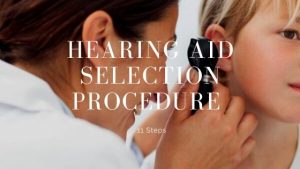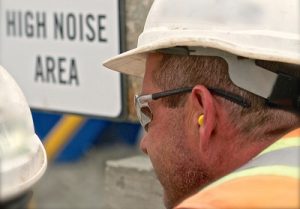
#10 Hearing aids are only for the elderly.
65% of people affected by hearing loss are under the age of 65. 13,000 people are born every year who will need a hearing aid. Hearing aids are especially important for those with hearing loss in early and later development, as hearing is an integral part of cognition and understanding.
#9 Everyone will see me wearing a hearing aid.
Much like the cell phone, hearing aids have made huge advances in the last ten years, and are now functioning as tiny computers. Most hearing aids today are no larger than the size of a dime, with the casing tucked behind the top of your ear, and only a very small, transparent receiver showing over the top of your ear.
#8 I don’t need a hearing aid.
1 out of 5 people who could benefit from hearing aids does not have them. We offer complimentary, no-obligation hearing screenings so you may establish a baseline for your hearing, and work on a plan to treat your hearing loss with our licensed specialists if you discover you do have a loss.
#7 When I absolutely need one, I’ll get one.
Hearing loss is the third most common physical condition after arthritis and heart disease, and it comes on gradually. Many people take up to seven years after hearing loss has been identified to treat their loss, which may result in a loss of connection between what you are hearing and what is being said. Once you begin to lose that connection between your ear and your brain, there is no way to treat it. Working to treat your hearing loss early is the best way to prevent long-term damage and improve your quality of life.
#6 Hearing aids make me look old.
Hearing aids today are hardly noticeable. What is noticeable is having an untreated hearing loss. People notice you like watching the TV loudly, or if you regularly ask them to repeat themselves, or have trouble following a conversation because it sounds like people aren’t speaking clearly to you.
#5 You can save money by buying a hearing aid over-the-counter.
Store-bought hearing aids can damage your ears. They are not easy to adjust, non-customizable can be uncomfortable, and are mostly outdated by today’s standards – meaning that this is a hearing aid you likely are going to wear very little and leave at home. Hearing loss is unique to an individual – the treatment that works for you may not be the treatment that will work for your neighbor. We are not alone in encouraging you to work with a specialist: the FDA also believes it’s in your best interest to visit a professional.
#4 I’ll get surgery instead.
While surgical procedures can be effective for children and teens, only 7% of adults can correct their hearing with surgery.
#3 I’ve tried hearing aids before… I hated them.
Hearing aid technology has experienced tremendous growth in the last ten years. Forget what you knew about your mother’s hearing aids and consider those on today’s market. Today, you can have multiple programs for different life situations you will be in from day to day. Most hearing aids we carry have a Tinnitus-masking function. Many can even be found using an app on your smartphone if you accidentally lose them.
#2 My hearing loss isn’t serious and it’s easy to hide it.
Even minor hearing loss can affect your performance at work and socially. Yes, you may be able to get along with hearing loss, but you are causing serious stress to your mind. Your brain has to work twice as hard to make out communication as someone with normal hearing. You may believe you are concealing your loss, but consider this:
- How many times are you going to pretend to hear a missed punchline with friends?
- How many times are you going to ask your boss to repeat himself?
- How many times are you willing to sit in silence, give inappropriate responses, or be out of the loop with conversations simply because you couldn’t hear?
#1 Hearing aids cost a lot.
This myth is part stigma, part misinformation. The truth is, not having hearing aids costs much more.
Consider that hearing loss is an invisible health condition. If you needed a wheelchair, an artificial limb, would you not get one simply because it was a small investment?
You might not be able to see it, but bad hearing affects everything from simple balance to health. Dementia, memory loss, and depression are linked to hearing loss because they impede functions of the brain, which slowly isolates a person from enjoying life. Your hearing is a major life function, and the cost of not having a hearing aid affects not just your pockets, but your personal well-being.
[banner group='banner-group']



